Best place to refinance student loans: Refinancing student loans is necessary on the right occasions.

Applying to a bank, credit union, or online lender to pay off the student loans you wish to refinance will result in receiving a new loan with an interest rate. This is entirely based on your credit history, income, and other factors.
What does refinancing a student loan mean?
When you refinance student loans, a lender pays off the loans you’ve chosen to refinance and issues a new loan with a different interest rate and repayment term.
In some cases, you can choose to relieve your parent of some responsibilities by refinancing federal PLUS loans that your parents took to help you pay for college.
The goal of refinancing student loans is to pay a lower interest rate, especially if your credit score, income, and other financial factors qualify you for better loan terms than you received originally.
When should I consider refinancing student loans? Consider refinancing student loans if you have a good or excellent credit score and stable income (or a co-signer who does).
To restate that, to refinance student loans, you typically need consistent income, good to excellent credit (or a co-signer with good credit), and the willingness to compare offers from various lenders. This will help you get the lowest interest rate you qualify for, which is often the primary goal of borrowers when refinancing. Since the goal of refinancing is to save money on interest, you’ll likely want to choose the lender that offers you the lowest rate you qualify for.
The application process for student loan refinancing can be relatively quick. Many lenders claim that their applications can be completed in about 15 minutes if you have the necessary documents ready.
Before we consider the best place to refinance student loans, let’s see if it is necessary to refinance student loans in the first place.
Should I Refinance My Student Loans?
When deciding whether to refinance, three factors must be considered: financial history, interest rates, and repayment requirements.
First, determine whether you are eligible. Most student’s refinance lenders require a credit score of at least 650. You’ll also need to demonstrate consistent income, a low debt-to-income (DTI) ratio, and a track record of making on-time debt payments.
Are you eligible to refinance? Examine the interest rates on your current loans. If they’re significantly higher than the rate you’ll likely get if you refinance (which you can check using lenders’ prequalification tools on their websites), refinancing may be a good option for you.
However, keep in mind that if you refinance federal student loans, you will lose access to federal programs like flexible forbearance, income-based repayment, and Public Service Loan Forgiveness (PSLF). If you rely on these programs (or believe you will in the future), reconsider refinancing.
How to Refinance Student Loans
If refinancing makes sense for your situation, you can get started right away. Here are the steps to refinance your loans:
1. Look around before applying.
Prequalification for a loan is available from the majority of refinancing lenders. To do so, enter a few personal details, and the lender will perform a soft credit check (which will have no effect on your credit score) before displaying your estimated fixed and variable interest rates for your desired loan. Check with several lenders to see who has the best deals.
2. Fill out an application.
Submit a formal application once you’ve decided which lender you want to work with. This is a more detailed form, and you may be required to include additional documentation regarding your income and other details. After that, the lender will run a hard credit check to confirm your information. If you are approved, you will be given a summary of the final loan terms. Examine the documents, and if everything looks good, sign the paperwork to receive your loan.
3. Confirm that your old loan has been closed, then begin making payments.
Your old loan will most likely be paid off directly by your new lender. Maintain payments on your old debt, however, until you receive confirmation that it has been paid off and your account has been closed. After that, you will begin making regular payments to your new lender on your refinanced loan.
Best Place to Refinance Student Loans
We’ve identified the best place to refinance student loans for you. Our list is based on factors such as interest rates, borrower availability, and repayment options.
The lenders identified below as the best place to refinance student loans does not charge origination or prepayment fees, but some do charge late fees.
We scored each based solely on their student loan refinancing option.
1. Rhode Island Student Loan Authority (RISLA)
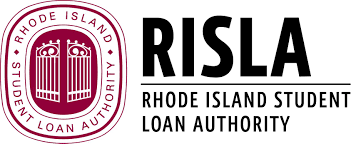
One of the very best places to refinance student loans is Rhode Island Student Loan Authority (RISLA).
RISLA is a nonprofit organization based in Rhode Island that refinances loans for customers all over the country. It is notable for its income-based repayment program, which limits payments to 15% of income for a period of 25 years if borrowers are unable to make payments. That, along with the 24-month forbearance period, is an extremely rare perk in the student loan refinance market.
But one must note that RISLA doesn’t provide a co-signer release policy, and it charges late fees.
RISLA only offers fixed interest rates.
For more information about RISLA refinancing, click here.
Loan terms available at RISLA:
- 5, 10 and 15 years.
- Interest rate estimate available without undergoing a hard credit check.
Loan amounts available at RISLA:
- $7,500 to $250,000, depending on the degree earned.
Eligibility:
- No degree is required.
- Minimum credit score = 680 and
- minimum income = $40,000.
Forbearance options:
- Up to 24 months of forbearance available.
Co-signer release policy:
None. No co-signer release is available.
2. PenFed Credit Union

Pentagon Federal Credit Union (PenFed Credit Union) is one of the best places to refinance student loans.
PenFed partners with Purefy, an online-only student loan provider, to provide student loan refinancing.
It distinguishes itself through its low rates and flexibility.
Graduates can refinance their parents’ PLUS loans and assume repayment responsibility, and spouses can consolidate their individual student loans into a single loan.
Co-signer release can also happen sooner. That means your co-signer may be released from repayment responsibility sooner, reducing the risk they take on by co-borrowing with you.
Once you’ve been preapproved for a loan, you’ll need to join PenFed Credit Union in order to refinance, but there are no restrictions on membership for refinancing customers, and there’s a small fee to join.
As a PenFed member, you will then have access to additional financial products.
But one must note that there is no deferment option available if borrowers go back to school and that PenFed charges late fees.
Loan terms Available at PenFed Credit Union:
- 5, 8, 12 and 15 years
- Interest rate estimate available without undergoing a hard credit check.
Loan amounts available:
- $7,500 to $300,000
Eligibility:
Eligibility criteria for refinancing student loans at PenFed include the following:
- Bachelor’s degree required.
- A minimum credit score of 700 and a minimum income of $42,000 if you refinance less than $150,000.
- You must use a co-signer if your credit score is 670 to 699 and your income is between $25,000 and $41,999.
- A minimum credit score of 725 and a minimum income of $50,000 if you refinance $150,000 or more.
- You must use a co-signer if your credit score is 670 to 724 and your income is $25,000 to $49,999.
Forbearance options:
PenFed does not provide a specific forbearance limit, but borrowers seeking repayment assistance can choose between temporary (six months or less) or permanent hardship assistance based on their circumstances. PenFed promises a personalized solution after submitting an application for assistance.
Co-signer release policy:
- Co-signer release is available after a comparatively short time.
- Available after 12 months of consecutive, on-time payments.
3. SoFi
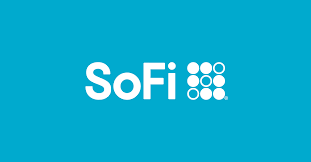
SoFi allows borrowers with an associate’s degree to refinance, allowing a broader range of applicants to qualify.
The amount you can refinance with SoFi is not limited. It is possible to refinance your loans up to the total balance, which is beneficial for those who have a lot of debt from professional degrees.
SoFi’s rates are higher than those of some other lenders, and it does not provide co-signer releases. However, as a SoFi customer, you will receive benefits such as a 0.125% interest rate discount on additional SoFi products such as personal loans and career coaching.
Loan terms available at SoFi:
- 5, 7, 10, 15 and 20 years.
- Interest rate estimate available without undergoing a hard credit check.
Loan amounts available:
- $5,000 and up to the total balance of eligible loans.
Eligibility:
- Associate’s or bachelor’s degree required.
- A minimum credit score of 650.
- Does not disclose income requirements.
Forbearance options:
- SoFi offers an Unemployment Protection Program that allows borrowers to pause payments in three-month increments for up to 12 months if laid off from work.
- A separate forbearance program is also available for borrowers experiencing other types of economic hardship, such as medical expenses.
- Borrowers can take up to 12 months of total forbearance, no matter which program they use.
Co-signer release policy:
- None. No co-signer release is available.
4. Massachusetts Educational Financing Authority – MEFA
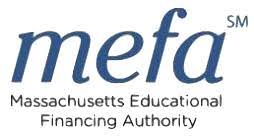
MEFA is one of the best places to refinance student loans.
The Massachusetts Educational Financing Authority is a non-profit, state-based organization that provides student loan refinancing to customers nationwide.
Borrowers are not required to have a degree, so those who did not graduate can refinance. It also does not impose any fees, including late fees.
While MEFA does not specify a forbearance limit, the agency says it will work with borrowers to modify payment plans if necessary due to financial hardship.
Because the fixed and variable rates are currently the same, choosing a fixed-rate loan ensures that it will not increase in the future.
Loan terms Available at MEFA:
- 7, 10 and 15 years
- The shortest loan term is 7 years.
- Interest rate estimate available without undergoing a hard credit check.
- No late fees.
Loan amounts available:
- $10,000 minimum; no maximum
Eligibility:
The eligibility criteria are as follows:
- No degree is required. Borrowers can refinance without a degree.
- Minimum FICO score of 670
- Minimum income of $24,000 for each loan applicant.
Forbearance options:
- No specific forbearance policy except in the case of natural disasters or other extenuating circumstances.
- Loan modification programs are available on a case-by-case basis to borrowers who need long-term help.
Co-signer release policy:
- None. No co-signer release is available.
5. Citizens Bank

This is also one of the best places to refinance student loans.
Citizens Bank is one of the few lenders that does not require borrowers to have completed high school in order to refinance. It also allows co-signers to be released after 36 loan payments.
Citizens Bank’s student loan refinancing rates are quite high at the high end. Borrowers with an existing account with the bank, on the other hand, may be eligible for an interest rate discount of up to 0.50%.
(While refinancing is available nationwide, only Connecticut, Delaware, Massachusetts, Michigan, New Hampshire, New Jersey, New York, Ohio, Pennsylvania, Rhode Island, and Vermont offer checking and savings accounts.)
Loan terms at Citizens Bank:
- 5, 7, 10, 15 and 20 years.
- Interest rate estimate available without undergoing a hard credit check.
Loan amounts available:
- $10,000 to $300,000 (for those with a bachelor’s degree or less)
- $500,000 (for those with a graduate degree)
Eligibility:
Eligibility criteria are as follows:
- No degree is required.
- Borrowers with no degree or an associate’s degree must show that they have made 12 on-time payments after leaving school in order to refinance.
- Minimum income of $24,000 for borrower and co-signer combined.
Forbearance options:
- Three months of forbearance are available at a time up to an undisclosed limit.
- Borrowers experiencing long-term financial hardship can participate in a loan modification program for up to 12 months.
Co-signer release policy:
- Available after 36 on-time payments.
Citizens Bank Refinance Your Student Loans Here.
6. Laurel Road

Laurel Road is an excellent place to refinance student loans.
They are an online-only lender. KeyBank acquired the company in 2019. Laurel road provides some benefits to borrowers who work in the healthcare industry.
If they have an employment offer, graduate students and those pursuing bachelor’s degrees in health professions (and those pursuing an associate’s degree in certain health care specialties) can refinance as early as their final semester of school. Other undergraduates can refinance after 12 months of employment.
Borrowers can also release their co-signers after 36 monthly payments, and graduates can refinance federal PLUS loans taken out in their parents’ names in their own names.
Refinance student Loans With Laurel Road.
Loan terms @ Laurel Road:
- 5, 7, 10, 15 and 20 years
Loan amounts available:
- $5,000 minimum;
- No maximum, except for associate’s degree graduates, who can refinance up to $50,000.
Eligibility:
- Must have a degree from an eligible institution.
- Associate’s degree graduates can refinance if they work in certain healthcare fields.
- They do not disclose credit scores or income requirements.
Forbearance options:
- Up to 12 months of forbearance available in three-month increments
Co-signer release policy:
- Co-signer release available after 36 consecutive, on-time payments
7. Earnest

Another great place to refinance student loans is Earnest.
Earnest has several unique features, including the ability to make automatic payments twice a month to accelerate repayment and the option to choose any repayment term between five and twenty years. It also provides a comprehensive set of hardship repayment options beyond the standard 12-month forbearance period, such as the ability to skip one monthly bill each year.
Borrowers are not permitted to apply with a co-signer, so you must meet the credit requirements on your own. Earnest did not specify how long it takes for unpaid loans to default.
Get started with Earnest student loan refinancing here.
Loan Terms Available at Earnest:
- Choose any term between 5 and 20 years.
- Your options may depend on your financial profile.
Loan amounts available:
- $5,000 ($10,000 for California residents) to $500,000
Eligibility:
Eligibility criteria are as follows:
- Borrowers must have completed a degree at an eligible nonprofit school and have a minimum credit score of 650.
- They must also meet other criteria, including having savings of at least two months’ worth of expenses, on-time payment history and no bankruptcies.
Forbearance options:
- Up to 12 months of forbearance available (after making three consecutive, timely payments toward the loan).
- Counted towards the forbearance limit, borrowers can also skip one payment every 12 months (after making six consecutive, timely payments) and get an interest rate or term modification in the event of long-term financial hardship.
8. Discover
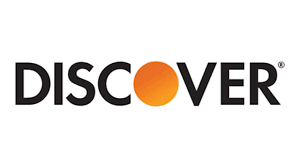
Discover is another amazing place to refinance student loans.
Borrowers are not required to have graduated in order to refinance. It also provides a variety of hardship repayment options for refinancing borrowers in need, in addition to the traditional 12 months of forbearance. Borrowers who are early in their repayment term can request a three-month payment suspension, and in certain circumstances, they can also request a reduced payment or a lower interest rate for six months.
Discover does not offer a co-signer release program, and applicants must choose between 10- and 20-year terms, which is more limited than most other lenders. However, refinance customers can always prepay their loans without penalty to save money on interest.
Discovery Loan terms:
- 10 or 20 years
Loan amounts available:
- $5,000 and up to total student loan debt balance, pending credit approval.
Eligibility:
- No degree is required.
- Borrowers must not have more than $150,000 in total student loan debt (except for those with certain degree types).
- Discover does not disclose credit scores and income requirements.
Forbearance options:
- Up to 12 months of forbearance available.
- Additional repayment assistance includes interest rate reduction or monthly payment reduction plans for borrowers experiencing financial hardship.
Co-signer release policy:
- None.
Consolidate your student loans at Discover here.
9. PNC Bank
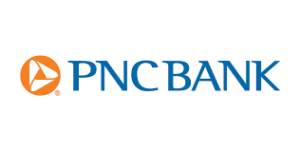
Another great place to refinance student loans is PNC Bank.
PNC Bank provides a 0.50% interest rate discount to borrowers who make monthly payments automatically from a bank account. It also does not require refinance borrowers to have a degree, but you must have made at least 24 months of payments on existing student loans to be eligible. You must also provide two years of earnings history.
PNC Bank allows co-signers to leave the loan after 48 months of payments, which is longer than the time frame offered by other lenders that offer co-signer release.
PNC Bank Loan terms:
- 5, 10 and 15 years
Loan amounts available:
- $10,000 to $75,000
Eligibility:
- Two years of income and employment history are required.
- PNC Bank does not disclose minimum credit scores or income requirements.
Forbearance options:
- Up to 12 months of forbearance are available in two-month increments.
- Borrowers must make full payments for at least 12 months between forbearance periods.
Co-signer release policy:
- Available after 48 months of consecutive, on-time payments
- Co-signer release is available after a longer time period than other lenders provide.
Sign up for PNC Bank student loan refinancing here.
10. ISL Education Lending
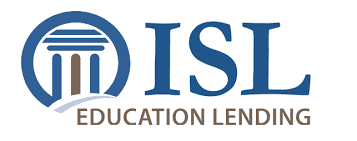
ISL Education Lending is another excellent place to refinance student loans. They provide student loan refinancing and private student loans. ISL offers to refinance before you graduate and low rates on its in-school products.
ISL is a non-profit lender that provides student loan refinancing and private student loans across the country. Its refinancing loan is beneficial to borrowers who have yet to graduate — or who never graduated in the first place. Its private loan includes consumer-friendly features such as no late fees and an accommodating forbearance policy.
Eligibility:
- Min. credit score of 670.
- A typical credit score of approved borrowers or co-signers = 750; approximately 760 for co-signers.
- Must be a U.S. citizen or permanent resident.
Loan terms:
- 5, 7, 10, 15 or 20 years.
- A 15-year term only for in-school refinancing.
Loan amounts:
- Minimum $5,000 ($10,000 for California residents).
- Maximum $300,000.
Best Place to Refinance Student Loans: Other Options
You can also refinance student loans with these options:
Tips for Comparing Student Loan Refinance Lenders
- Because the goal of refinancing is to save money on interest, you’ll want to go with the lender who offers you the lowest interest rate you qualify for.
- Variable rates are typically lower than fixed rates, but they may rise in the future; choose a variable rate only if you intend to pay off your loan quickly.
- Refinancing is usually best for people with high incomes and stable jobs. However, life is unpredictable. Consider choosing a lender with a more generous forbearance policy if you believe you may need to pause payments or reduce your monthly bill.
- Also, if you choose to refinance with a co-signer, look for a lender that has a co-signer release policy so you can take on the full repayment obligation whenever possible. This will shield your co-credit signer’s from any negative marks that may result if you fall behind on payments.
Best Place to Refinance Student Loans: Frequently Asked Questions
Let’s answer a few questions regarding the best place to refinance student loans:
1. Which student loans should I refinance?
Refinancing high-interest private loans is your best bet. Because you will not lose potentially beneficial federal repayment options, such as up to three years of deferment or forbearance.
You are not required to refinance all of your loans, so leave federal loans out of your refinance package.
It is possible to refinance federal loans if you do not intend to use any federal loan benefits or if you want to refinance so that you can pay off loans quickly. Consider doing so after the Covid-19 monthly payment freeze expires.
2. When is the best time to refinance student loans?
Because many lenders require a degree to refinance, it’s best to wait until you’ve graduated. Some lenders have less stringent degree requirements, but they may want to see a track record of on-time student loan payments first (say, 12 months). With some exceptions, you must also be out of school before refinancing.
If you don’t yet meet the credit and income requirements but still want to refinance, you can use a co-signer. However, because the co-signer puts their credit score at risk, it’s best to wait to refinance until you have the financial profile to be eligible as the sole borrower. You can take the time to improve your credit score before refinancing.
3. What is a ‘co-signer release?’
Some refinance lenders offer to release a co-signer from a loan after a certain number of payments have been made by the borrower. This can shield the co-signer from a credit hit caused by the primary borrower’s poor payment history. If you intend to use a co-signer release, review your loan documents to determine when it will be possible (for example, in 36 months) and what additional requirements you may need to meet.
4. How many times can you refinance student loans?
There is technically no limit to how many times you can refinance student loans, but after a few attempts, the process is unlikely to be useful. The primary reason for refinancing debt is to secure a lower interest rate, and at some point, you may discover that you already have the lowest rates available.
5. What is the credit score needed to refinance student loans?
The minimum credit score required to refinance student loans varies by lender, but as a general rule of thumb, you’ll need around 650 to qualify. However, a credit score of 720 or higher is a common benchmark for obtaining the best interest rates available.
If your credit score is low, you should postpone refinancing until you can improve it.
6. Can I refinance student loans with bad credit?
If you have bad credit, some lenders may refinance your student loans, but it is often not worth it. You’ll probably only qualify for the highest interest rates if you have bad credit or a spotty financial history. Because most people refinance to get a lower rate, refinancing with bad credit is probably not a good idea.
You may be able to add a co-signer to your application, however. You may be able to qualify for better rates if they have excellent credit and a stable income, even if your own credit score is low. However, adding a co-signer comes with its own set of risks and rewards, so make sure you understand the benefits and drawbacks before implementing this strategy.
7. Is refinancing student loans better than consolidation?
Student loan refinancing and consolidation are two processes that are similar but distinct. When you refinance, you combine all of your old loans into one new debt. Your creditworthiness determines the interest rate on the refinanced loan, and if you have excellent credit, you could save a lot of money by getting a lower rate. Because refinancing is only available through private lenders, your refinanced debt will be a private student loan.
Student loan consolidation, on the other hand, usually refers to a direct consolidation loan. This is a federal program that enables borrowers to consolidate multiple federal student loans into a single loan. Because it is still federal debt, you are still protected. The new interest rate on your consolidated loan, on the other hand, is simply a weighted average of your old rates. This means that consolidation will not save you money.
Both refinancing and consolidation have advantages and disadvantages, and your financial situation and goals determine the best option for you.
8. Is student loan refinancing right for me?
Consider refinancing your student loans if your financial situation qualifies you for a lower interest rate than you currently have and you are satisfied with the terms of your new loan. For example, only private companies provide student loan refinancing, so if you refinance federal loans, you will lose important safeguards such as flexible repayment plans and forgiveness options. If you anticipate using these benefits in the future, refinancing only your private loans may be the best option. Alternatively, instead of refinancing, consider a different student loan repayment strategy.
9. How do I know if I’ll qualify for student loan refinancing?
Refinance lenders want to know that you will consistently make on-time payments. That is, they generally require good or excellent credit, which means a credit score in the upper 600s or higher, as well as stable income and a low total debt-to-income ratio. Lenders have different requirements. If you do not qualify on your own, you can use a co-signer to gain eligibility or a lower interest rate than you would otherwise have.
10. How do I evaluate student loan refinance offers?
Compare offers from multiple lenders to find the best rates and terms on a new student loan. This includes not only the interest rate but also the number of years it will take to pay off the loan, the monthly payment, and any fees. While it may be tempting to choose the smallest monthly payment available, you will typically pay more in interest over time, reducing the savings from your new, lower interest rate.
12. Should I choose a fixed or variable interest rate?
When refinancing student loans, you will typically have the option of selecting a fixed or variable interest rate. A fixed-rate does not change during the repayment period, whereas a variable rate is linked to an index, such as the Prime rate or LIBOR, and changes in response to market fluctuations. Fixed rates are typically a better bet when interest rates are low across the board because you’ll lock in a low rate that won’t rise over time.
That is it for this discussion on the best place to refinance student loans. For any questions and comments, contact us using the comment section below.
Recommended:
How to Write a Business Loan Application Letter

